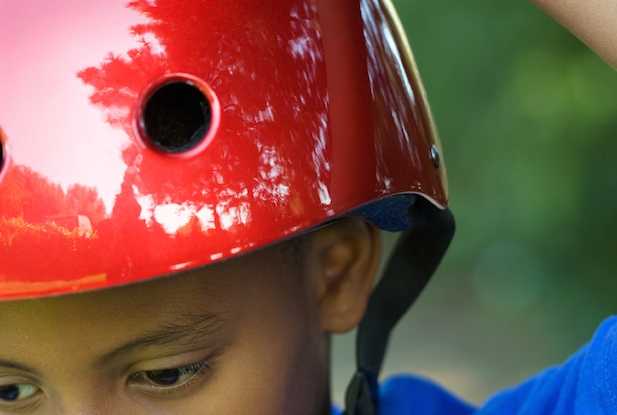Helmets Do Not Prevent Concussions

The British Journal of Sports Medicine recently published the results of a study finding no good evidence that helmets prevent concussion. Ironically, the consensus statement from the 28 neurologists who examined the research concluded that helmets may even encourage users to assume greater risks.
While helmets may not prevent concussion, they are an effective piece of safety equipment when participating in sports that take place on hard surfaces. Helmets can prevent skull fractures and other serious forms of head injury when worn in sports such as skiing, snowboarding, cycling, motor, off-road and equestrian sports. Their effectiveness is lessened when the helmet has been improperly fitted, worn too loosely, kept for too long, or even worn after already being exposed to a heavy blow.
Parents need to use caution when considering the type and design of helmets chosen for children. A helmet is not something that a child should be expected to grow into. Additionally, helmet covers that add Mohawks, devil horns, or animal ears and tails can change the design characteristics in ways that lessen the helmet’s effectiveness. Studies have also shown that helmets that do not slide smoothly against a surface can expose users to injuries by increasing forces against the head and neck. The inability for a helmet to slide smoothly can also create enough friction between surfaces to pull open a helmets chinstrap exposing the head to greater injury.
Helmets are effective at lessening the blow from an impact with a hard surface when they are used and worn as the manufacturer intended. Unfortunately, head injuries will still occur across all sports and hobbies, whether or not they are played at an elite level. If you, or someone you know, has suffered a head injury because of a sporting or other accident it is important to speak to an experienced personal injury lawyer who can advise you on your legal rights.
